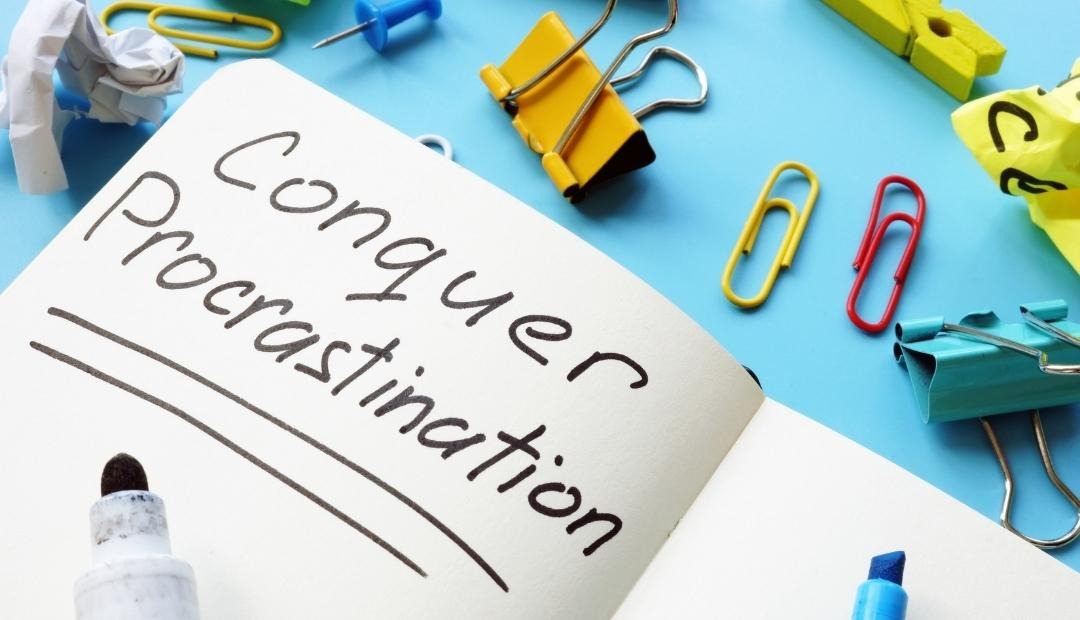Procrastination is not laziness, even though it may look like laziness to others. Procrastination is a way of coping with tasks you find unpleasant, overwhelming or boring by doing something else instead.
Although it may feel good to watch TV or check social media instead of writing a paper or cleaning the house, procrastination typically leads to feelings of guilt and increases stress.
Procrastination may affect people in different ways. For some people, it's simply a matter of poor time management skills. Others use it as a coping mechanism for anxiety about work or school. Either way, below are steps you can take to overcome procrastination.
Plan Your Day
Procrastinating often happens because you don't plan your time well. You might not know what needs to be done, when it has to be done, or how long it will take.
To make sure you're being efficient and productive with your time, plan out your day. Write down everything that needs to be done, in order of priority.
Planning will help you figure out how much time you need for each task and when you have time available to do them. This way, you won't end up scrambling at the last minute or putting off a task until it's too late.
Set Small Goals
One of the best ways to avoid procrastinating is to set small goals. If you're working on a large project, break it up into smaller parts and set a goal to complete one of those parts within a given time frame.
For example, if you are writing a paper, set a goal to write the introduction. If you have an important presentation coming up, set a goal to work on it for one hour each night before dinner.
Make it easier for yourself by creating a checklist that has specific steps you can take to complete your work. Setting smaller goals makes tasks seem less overwhelming and more manageable.
Learn To Prioritize
One of the main reasons people procrastinate is because they don't know where to start, or they have too many tasks on their plate and don't know which ones to complete first.
It's impossible to get everything done right away. Instead of trying to accomplish too much at one time, set priorities for the things that need to get done.
If you have a lot of work due in school, for example, focus on completing the assignments that are due first and leave the others for later.
This will help you stay focused on what you need to do now instead of worrying about what's coming up in the future.
Keep Your Workplace Tidy
One of the most common reasons for procrastination is that we often allow ourselves to be distracted from our work by the environment around us.
Set up a place away from distractions, like a quiet room or an office. If you are working on your computer, close any distracting websites or applications. Keep your phone out of reach or put it on silent so that you aren't tempted to check it for messages or notifications while working.
It's also important to keep your workspace clean and tidy. It's easy to get distracted by clutter and mess, so it's best to keep your desk organized and clear of items that you don't need for the task at hand.
Embrace Imperfection
Accept that perfection isn't possible. It's easy to beat yourself up when you don't get the results you want. Maybe you missed a deadline or didn't hit your goal in a project.
Many people procrastinate because they want their work to be perfect. But it's simply an unattainable standard that will lead to constant disappointment.
Just do the best you can with the task and move on. Accepting that things don't always have to be perfect can help you stop procrastinating and move forward with what matters.
Overcoming chronic procrastination takes time, effort, and a commitment to breaking the habit. But at the very least, hopefully, this article has shown you that procrastination isn't a life sentence. It's something you can overcome.
Oxford at Lake View Apartments in Corinth, TX



